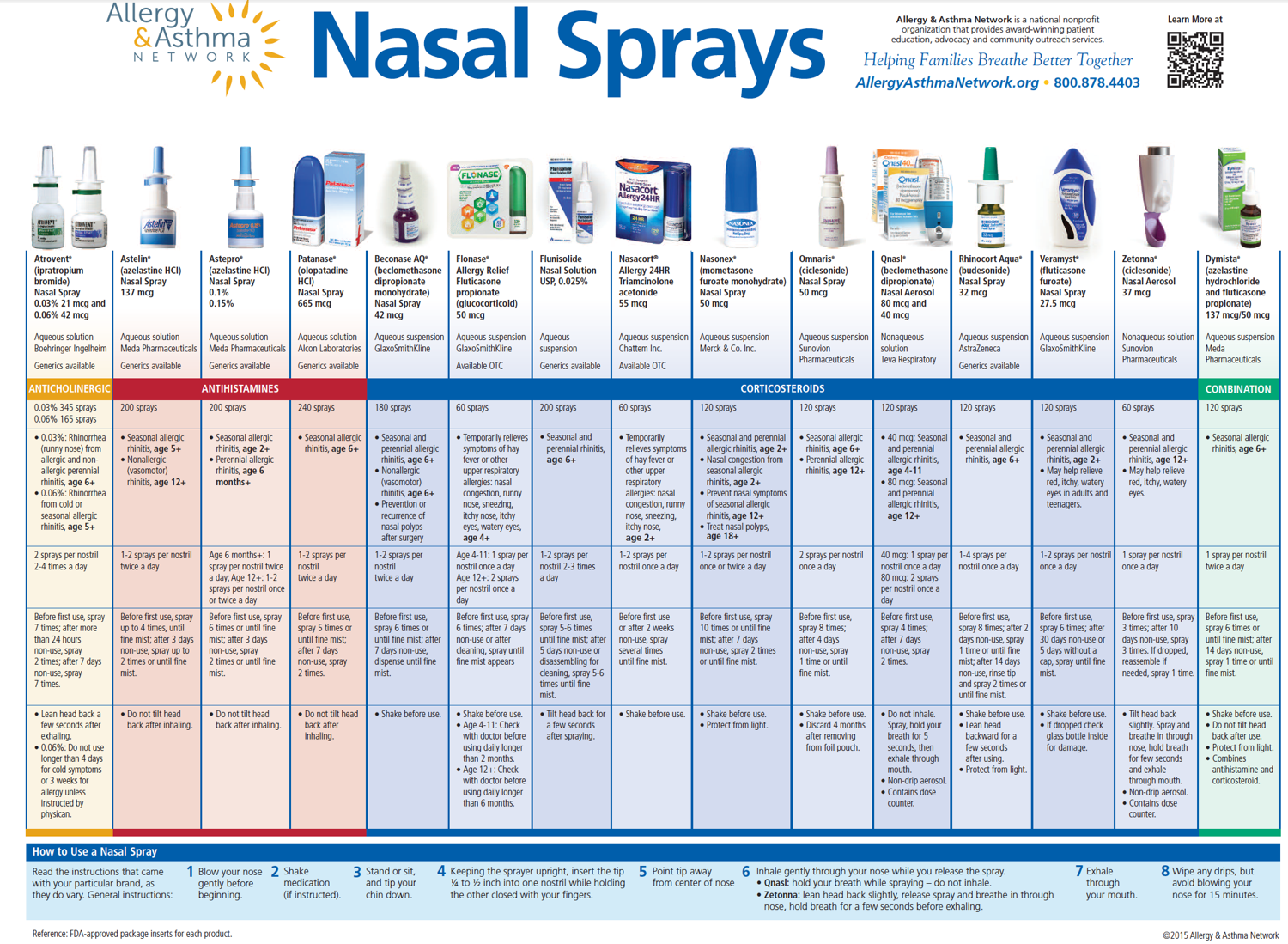Nasal sprays deposit allergy medication right where you need it: directly on the lining of your nasal passages. This gives you maximum benefit with minimal side effects because you’re not medicating your entire body just to clear up your nose.
There are several different types of nasal sprays available to treat different sets of symptoms:
Nasal Corticosteroid Sprays
Corticosteroids are a class of medication developed to reduce tissue inflammation (swelling). Inhaled corticosteroids are used by many people with asthma to reduce airway inflammation. Nasal corticosteroid sprays perform a similar function in your nose. They are nonsedating – they won’t make you sleepy – and they help eliminate the sneezing and runny nose that are part of the inflammatory reaction.
Nasal corticosteroids start working quickly, but you may not feel the full effects for several weeks. Doctors generally recommend that you start taking these medications a few weeks before your allergy season starts, or regularly if you have year-round symptoms. Before you start using nasal corticosteroids, be sure your nasal passages are open enough to let the medicine get inside. If you are severely congested, you may need to use a nasal wash or take a decongestant for a few days first to clear out your nose before you spray.
Nasal corticosteroid sprays come in two types: traditional water-based solutions and waterless, “dry” aerosols. Some brands are now available at pharmacies without a prescription.
It’s important to use the spray correctly: aim the nozzle away from the middle of the nose, to get maximal benefit and reduce risk of nosebleeds.
Nasal Decongestant Sprays
Nasal Decongestant spray are completely different from nasal corticosteroid sprays. They act to quickly shrink swollen membranes, but they can also irritate the inner lining of the nose and some studies show they can be addictive. Nasal decongestant sprays are usually used for symptoms of a cold, and are not generally used to treat seasonal allergies. They should never be used for more than 1-3 days because of the potential for addictive side effects.
Anticholinergic Nasal Sprays
These treat vasomotor rhinitis, which is not an allergy. Symptoms are similar to allergic rhinitis, but discharge from runny noses is usually more clear.
Saline Sprays
Saline Sprays, which do not contain medicine, are salt water solutions that have a soothing effect when sprayed into the nose and can help break up mucus in your nasal passages. Think of a saline spray as a moisturizer for the nose.
© 2021 Allergy and Asthma Network

Last updated : 12/11/2020
